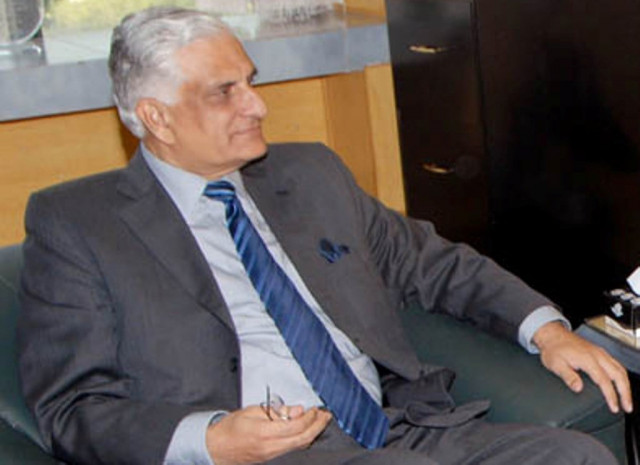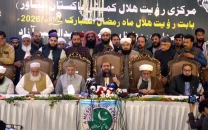Khatm-e-Nabuwwat clauses: NA unanimously passes amendments to Election Act 2017
Sections 7B and 7C of the Conduct of General Elections Order, 2002 restored to their original form

Federal Law minister. Zahid Hamid. PHOTO: PID
The amendment bill was tabled by Law Minister Zahid Hamid in a specially convened session of the lower house of Parliament chaired by Speaker Ayaz Sadiq, Express News reported.
Addressing the session, Hamid said sections 7B and 7C of the Conduct of General Elections Order, 2002 have been restored to their original form.
“I am a lover of the Prophet (pbuh) and have performed two Hajj and several Umrah pilgrims… I can’t even think about changing the clauses on Khatm-e-Nabuwwat,” he said in his address.
Amended bill will make the clauses relating to finality of prophethood more effective and a separate voters list will be created for Ahmadis as they will not be included in the list for Muslims, said the law minister.
IHC partially suspends applicability of Election Act 2017
He said the Khatm-e-Nabuwwat declaration has also been restored to original form in English and Urdu through the amended bill.
Reacting to Hamid’s statement, Interior Minister Ahsan Iqbal said that faith was a personal issue and between man and the Almighty. “Should we go door-o-door to announce that we are Muslims?,” he questioned.
Sheikh Rashid objected to Iqbal’s comments, saying he started speaking without knowing anything. Hamid did not issue the statement on anyone’s behest and it was his own opinion, he added.
Seeking the speaker’s ruling, the Awam Muslim League (AML) chief said point of view of the two ministers differed. “If anyone is Ahmadi or Mirzai then he would have to declare it officially,” he remarked.
Later, the house unanimously adopted the amendment bill which will now be tabled in Senate.
The Pakistan Tehreek-e-Insaf (PTI) and Awami Muslim League (AML) had challenged the Election Act 2017, which paved the way for Nawaz Sharif to become head of the Pakistan Muslim League-Nawaz (PML-N) after his disqualification in Panama Papers case ruling on July 28. The Pakistan Peoples Party (PPP) had also challenged the election bill.
The Election Act 2017 was unanimously passed by the National Assembly with some 40 amendments by the government and the opposition.
The Senate on November 6 had unanimously adopted a bill seeking amendments to the Election Act 2017, with special emphasis on religious minorities. PTI legislator Azam Khan Swati had moved the bill in the upper house.
The Khatm-e-Nabuwwat issue
In October, copies of the Elections Act 2017 showing changes to certain parts of the law began circulating on social media.
Through the Election Act, 2017, the words in Form-A “I solemnly swear” had been replaced with “I believe”.
Sections 7B and 7C of the Conduct of General Elections Order, 2002, which relate to the status of Ahmadis, had also been omitted in the Election Act, 2017.
Opposition lawmakers called for a judicial inquiry to fix responsibility for the changes made in the relevant clause in the draft passed by Parliament.
Section 7B states that the status of Ahmadis would remain as stated in the Constitution of Pakistan, while Section 7C states that if an enrolled voter’s belief in the finality of Prophet Muhammad’s (PBUH) Prophethood is contended, they shall have to sign a declaration stating so, failing which their name shall be deleted from the joint electoral rolls and added to a supplementary list of voters in the same electoral area as non-Muslim.



















COMMENTS
Comments are moderated and generally will be posted if they are on-topic and not abusive.
For more information, please see our Comments FAQ